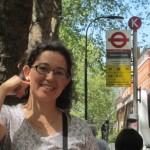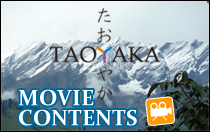Fuyo Yamamoto

Name: Fuyo Yamamoto
Department: Graduate School for International Development and Cooperation, Program in Development Science
Course: Social Implementation Course
Research Field: Innovative Approaches to Meeting the Accessibility Needs of Rural Populations
Supervisor: Professor, Junyi ZHANG
Career and Academic Background before TAOYAKA Program
After graduating with a Masters in International Economics from the University of Sussex in 1993, I entered the United Nations through its National Competitive Examination in 1997. My first posting was in the United Nations Economic and Social Commission for Asia and the Pacific, where I joined the Environment and Natural Resources Development Division, and then a few years later, the Transport Division.
I worked on policy analysis covering a wide-range of transport issues, including intra-regional transport infrastructure networks (the Asian Highway, Trans-Asian Railways and Dry Ports), sustainable transport policies, and public-private partnerships for infrastructure development.
As ESCAP is one of the UN’s regional commissions, our main counterparts were the ministries of transport, public works and infrastructure. But for many years I have been personally interested in rural transport, which is usually handled by local governments. That’s why I left the UN to join the Taoyaka Program at Hiroshima University, where I am currently researching rural transport in Japan and Nepal.
Research Plan in TAOYAKA Program
Transport has a direct bearing on the reduction of poverty, particularly in rural areas where the majority of poor people in Asia live. Research has shown that rural roads and transport services help farmers raise their incomes by allowing them to realize surplus production. Rural roads and services also facilitate access to schools, medical clinics, hospitals, cultural and religious institutions, both for users and service providers.
I am currently learning about rural transport in Nepal. Specifically, I am looking at how spatial factors affect transport options and travel behaviour, and how these factors, in turn, affect how people live and work. I am particularly interested in access to schools and health services. I will compare different topographical regions of Nepal, while also looking at the socio-economic and cultural influences on transport decisions.
Career Plan after TAOYAKA Program
I will continue to work in a job related to international development, if possible in the transport sector. I would prefer to have my own company or work in the private sector, but it’s too soon to say what the job market will be like several years hence. I will therefore wait to see what opportunities present themselves.





